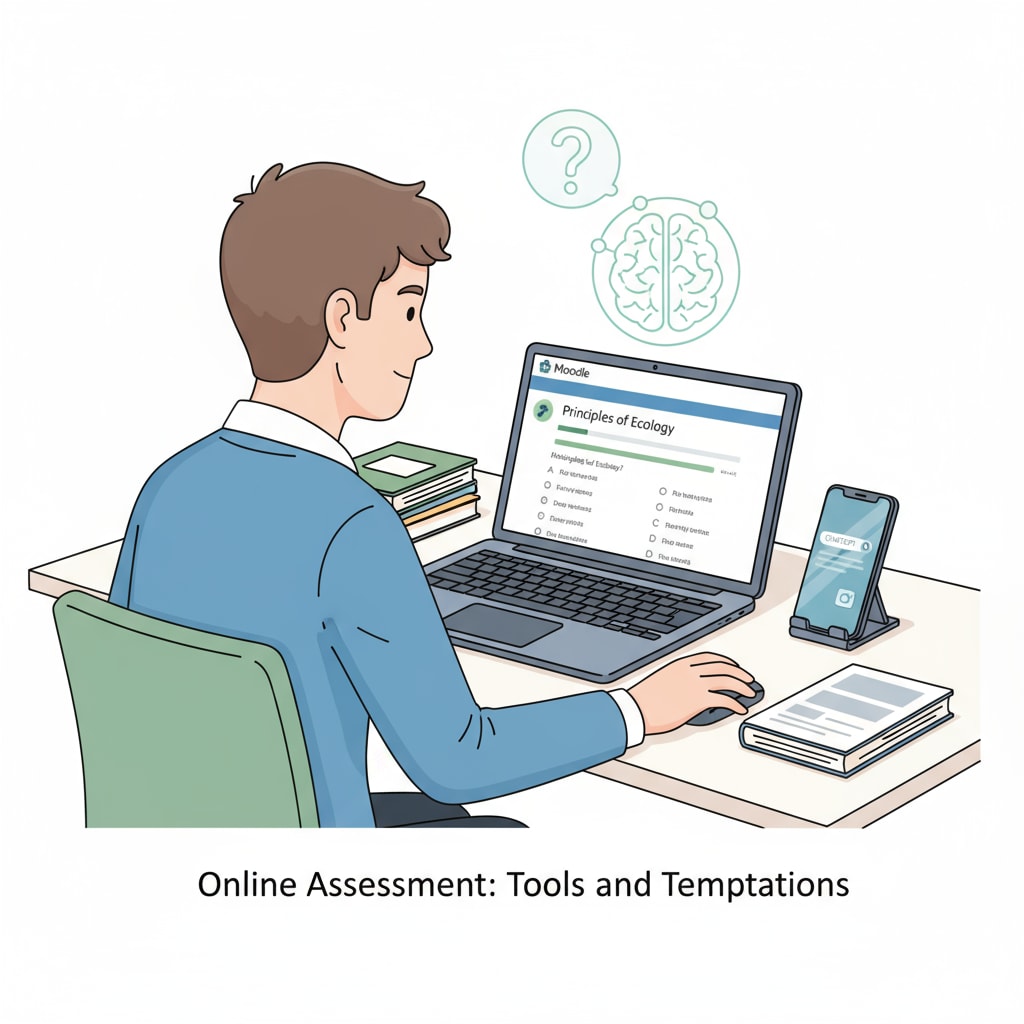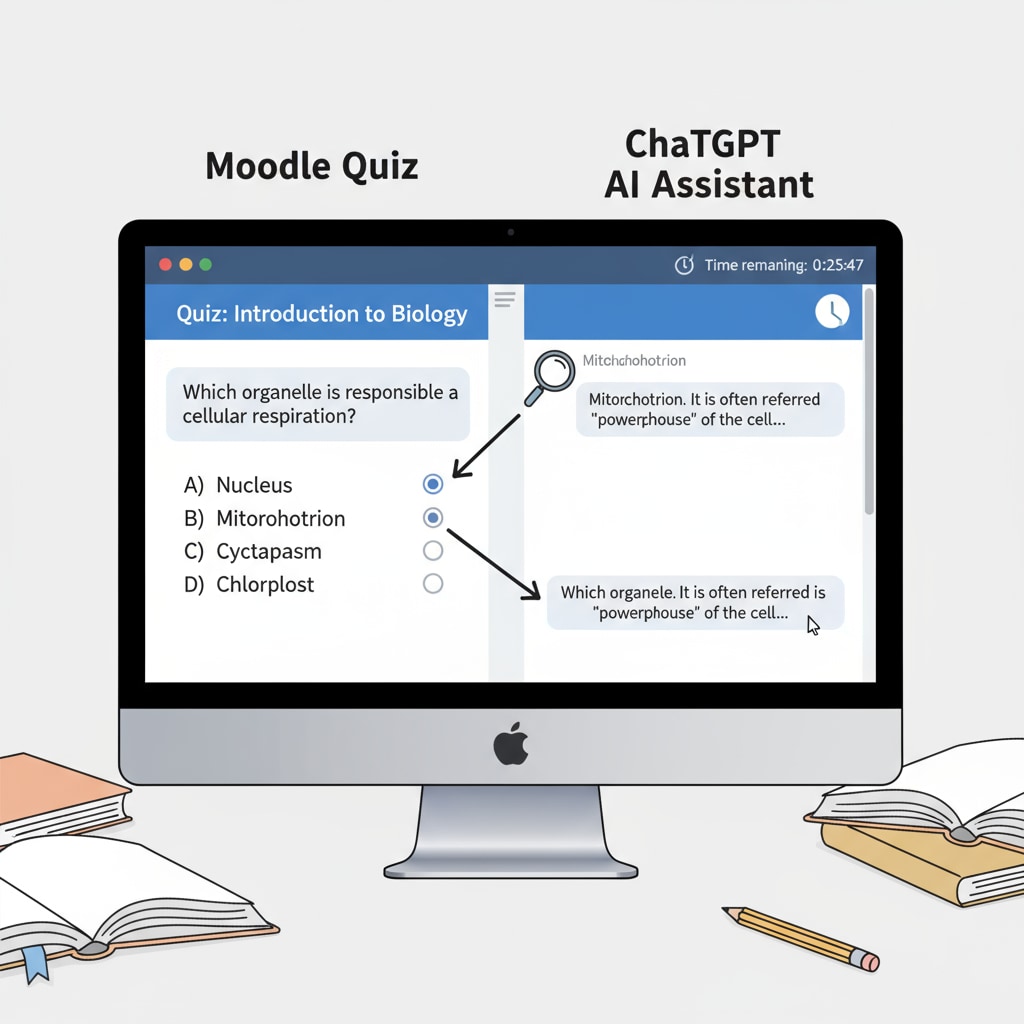In the digital age, the landscape of education has undergone a significant transformation, especially with the increasing reliance on online learning platforms like Moodle. The integration of technology in education has brought numerous benefits, such as flexibility and accessibility. However, it has also given rise to new challenges, particularly in the realm of academic integrity. The use of tools like ChatGPT and the act of taking screenshots during Moodle online quizzes have become major concerns for educators.

The Rise of AI and Screenshot Challenges in Moodle Quizzes
The emergence of powerful AI language models like ChatGPT has revolutionized the way information is accessed and generated. In the context of Moodle online quizzes, students can potentially use these tools to obtain answers, undermining the purpose of assessment. Additionally, the ease of taking screenshots allows students to capture quiz questions and seek external help later. This dual threat has made it difficult for educators to ensure that students are demonstrating their true knowledge and skills.

Limitations of Technical Monitoring
Educators have attempted to use various technical means to monitor students during Moodle online quizzes. For example, some systems can detect if a student switches tabs or uses certain applications. However, these methods have limitations. AI tools like ChatGPT can be accessed through mobile devices or in ways that are difficult to detect. Moreover, screenshots can be taken discreetly, making it hard to catch students in the act. As a result, relying solely on technology for monitoring is insufficient.
Strategies for Educators
To address these challenges, educators need to adopt a multi-faceted approach. Firstly, they can design quizzes in a way that discourages the use of external aids. This could involve using open-ended questions that require critical thinking rather than simple recall. Secondly, educating students about academic integrity is crucial. By emphasizing the importance of honesty and the consequences of cheating, students may be more likely to abide by the rules. Additionally, educators can implement proctoring services, either in-person or online, to closely monitor students during quizzes.
In conclusion, the issues of students using ChatGPT and taking screenshots during Moodle online quizzes pose significant threats to academic integrity. While technical monitoring has its place, a combination of well-designed assessments, student education, and proctoring is necessary to maintain the integrity of the learning and assessment process. Educators must stay vigilant and adapt to the ever-evolving technological landscape to ensure that students are held accountable for their learning. Academic integrity on Wikipedia EDUCAUSE, a resource for educational technology
Readability guidance: The article uses short paragraphs to convey information clearly. Each section provides key points related to the challenges and solutions regarding Moodle quizzes, AI use, and screenshots. Transition words are used to connect ideas smoothly, and a balanced approach is taken to discuss the issues at hand.


